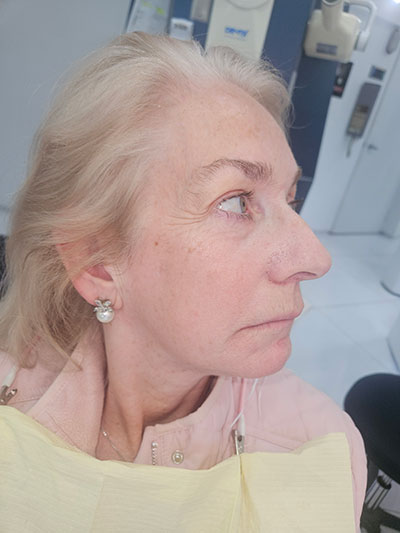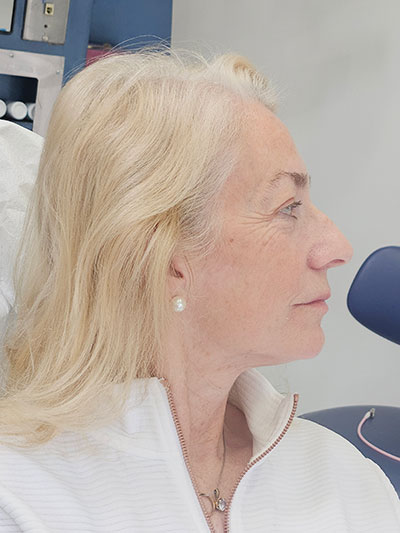How Jaw Position Shapes Your Face and Health
Learn about the profound impact of jaw position on both facial aesthetics and overall health, discover the consequences of jaw misalignment, and explore effective non-surgical solutions for lasting correction. This blog covers how jaw alignment affects your appearance, why underlying skeletal issues matter, and what modern corrective options exist for true harmony and relief.
Why Jaw Alignment Matters
Your smile may catch attention, but the true foundation is your jaw. How your jaw is positioned has a direct impact on your facial symmetry, chin definition, proportions, and even how you age. Misalignment can lead to discomfort and deeper health issues—not just cosmetic concerns.
Linking Jaw Alignment With Appearance
The lower jaw (mandible) anchors the lower third of the face. Proper alignment results in a strong jawline, defined chin, and balanced contours. If the jaw sits too far back, the chin can seem weak or recessed, while an uneven bite may cause noticeable facial asymmetry. The skeletal framework beneath the skin is vital for true facial harmony—beyond what cosmetic treatments alone can achieve.
Non-Surgical Change
Her sunken face, small recessed chin, and jaw misalignment created narrow facial proportions and made her nose appear exaggerated. Dr. Goodman’s Class I Veneers corrected the chin position and achieved non-surgical jaw alignment, creating harmonious facial proportions with reduced wrinkles—all without preparation.

Before

After
How Misalignment Affects Health
A misaligned temporomandibular joint (TMJ) sets off a cascade of problems. This joint connects your jawbone to your skull, and when it’s not aligned, facial and neck muscles work overtime to compensate.
Common consequences include:
- Weak or Receding Chin: Often caused by a retrognathic (set-back) jaw.
- Loss of Facial Height: Premature wrinkles, thin lips, or a “collapsed” lower face.
- Facial Asymmetry: Muscles develop unevenly, causing lopsided cheeks or jawline.
These signs point to deeper structural imbalance, not just surface signs.
The Broader Health Connection
Jaw misalignment can trigger chronic health issues:
- TMJ Dysfunction: Clicking, popping, chewing difficulty, and pain.
- Frequent Headaches & Migraines: Often tension-related and radiate from jaw muscles.
- Neck and Shoulder Pain: Muscle tension spreads beyond the jaw.
- Sleep Apnea & Snoring: Jaw alignment narrows the airway, increasing risks.
Treating the jaw’s skeletal structure first offers lasting relief and a sound base for further enhancements.
Modern, Non-Surgical Solutions
In the past, jaw misalignment often meant surgery. Today’s advances in neuromuscular and cosmetic dentistry offer non-invasive options:
- Comprehensive consultation and diagnostic imaging (often 3D).
- Custom oral appliances gently retrain jaw positioning.
- Muscle realignment reduces pain and improves facial symmetry.
Once stable, additional cosmetic enhancements can enhance your smile further.
Experience Lasting Transformation
Addressing jaw alignment delivers improvements beyond aesthetics—from facial harmony to chronic pain relief. If ongoing headaches, neck pain, or dissatisfaction with your profile persist, jaw alignment could be the root solution.
Schedule a consultation to discover personalized, non-surgical approaches for a radiant look and greater comfort.
FAQs
How does jaw alignment affect my facial appearance?
Jaw alignment directly impacts your facial symmetry, chin definition, and overall facial proportions. A misaligned jaw can cause a recessed or weak chin, facial asymmetry, and premature aging signs like wrinkles and thin lips.
Your jaw position serves as the foundation for your facial structure, particularly the lower third of your face. When properly aligned, the jaw creates a strong jawline, defined chin, and balanced facial contours. However, if your jaw sits too far back (retrognathic), it can result in a weak or receding chin appearance. Misalignment can also cause facial asymmetry, where one side of your face develops differently than the other due to uneven muscle compensation. Additionally, jaw misalignment can lead to loss of facial height, creating a "collapsed" appearance with premature wrinkles and reduced lip fullness. The skeletal framework beneath your skin determines true facial harmony—something that goes beyond what surface-level cosmetic treatments can achieve alone.
Can jaw misalignment cause health problems beyond cosmetics?
Yes. Jaw misalignment can trigger TMJ dysfunction, chronic headaches and migraines, neck and shoulder pain, and even sleep apnea or snoring by narrowing your airway.
A misaligned temporomandibular joint (TMJ) creates a cascade of health issues throughout your body. When the joint connecting your jawbone to your skull isn't properly aligned, your facial and neck muscles must work overtime to compensate for the imbalance. This leads to TMJ dysfunction, which manifests as clicking, popping sounds, difficulty chewing, and jaw pain. Many people experience frequent tension headaches and migraines that radiate from overworked jaw muscles. The muscle tension doesn't stay localized—it often spreads to cause chronic neck and shoulder pain. Perhaps most seriously, jaw misalignment can narrow your airway, contributing to sleep apnea and snoring, which affect your sleep quality and overall health. Addressing the underlying skeletal jaw structure offers lasting relief from these interconnected problems.
Are there non-surgical options to correct jaw misalignment?
Yes. Modern neuromuscular and cosmetic dentistry offers non-invasive solutions including comprehensive 3D diagnostic imaging, custom oral appliances that gently retrain jaw positioning, and muscle realignment therapies.
While jaw surgery was once the primary solution for misalignment, today's dental advances provide effective non-surgical alternatives. The process typically begins with a comprehensive consultation and diagnostic imaging, often using 3D technology to precisely assess your jaw position and bite relationship. Custom oral appliances are then designed to gently guide your jaw into proper alignment over time, retraining the muscles and joint without invasive procedures. These appliances work by gradually repositioning the jaw while reducing muscle tension and improving facial symmetry. Muscle realignment techniques complement these appliances by addressing the compensatory patterns your muscles have developed. Once your jaw position is stabilized, additional cosmetic enhancements can be considered to further enhance your smile. This non-surgical approach, often called FACE Dentistry or Class I Veneers, can achieve significant improvements in both appearance and comfort without the risks, recovery time, or expense of surgical intervention.
How can I tell if I have jaw misalignment issues?
Common signs include a weak or recessed chin, facial asymmetry, clicking or popping jaw sounds, frequent headaches, neck and shoulder pain, difficulty chewing, and snoring or sleep issues.
Jaw misalignment presents through both visible and physical symptoms. Visually, you might notice a weak or receding chin, uneven facial contours, or asymmetry where one side of your face looks different from the other. You may observe premature wrinkles, particularly around the lower face, or a "collapsed" appearance with reduced facial height. Functionally, listen for clicking or popping sounds when you open and close your mouth, which indicates TMJ dysfunction. Many people with jaw misalignment experience chronic tension headaches or migraines that don't respond well to typical treatments. Muscle compensation often causes persistent neck and shoulder pain. You might have difficulty chewing certain foods or notice that your bite feels "off." Sleep-related issues like snoring or waking up tired can also signal that jaw misalignment is narrowing your airway. If you experience ongoing headaches, neck pain, or dissatisfaction with your facial profile despite good dental hygiene, jaw alignment could be the underlying issue worth investigating with a neuromuscular dentist.

